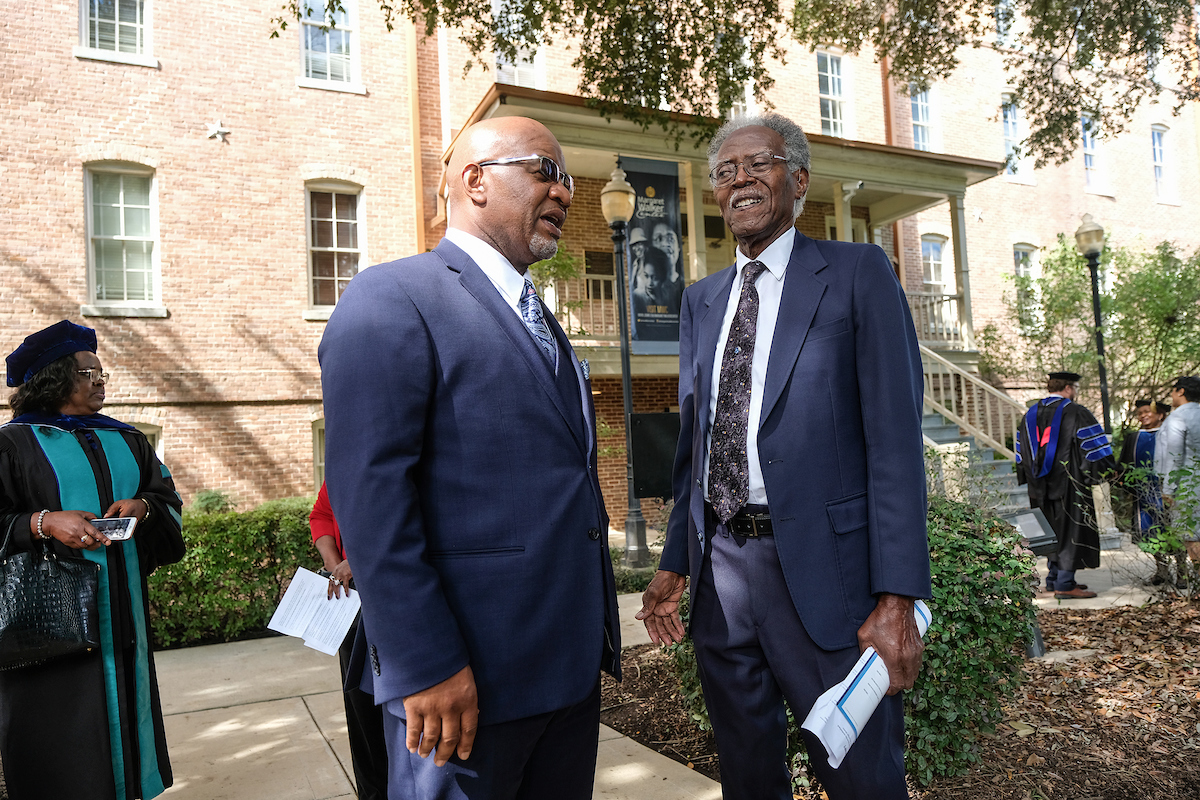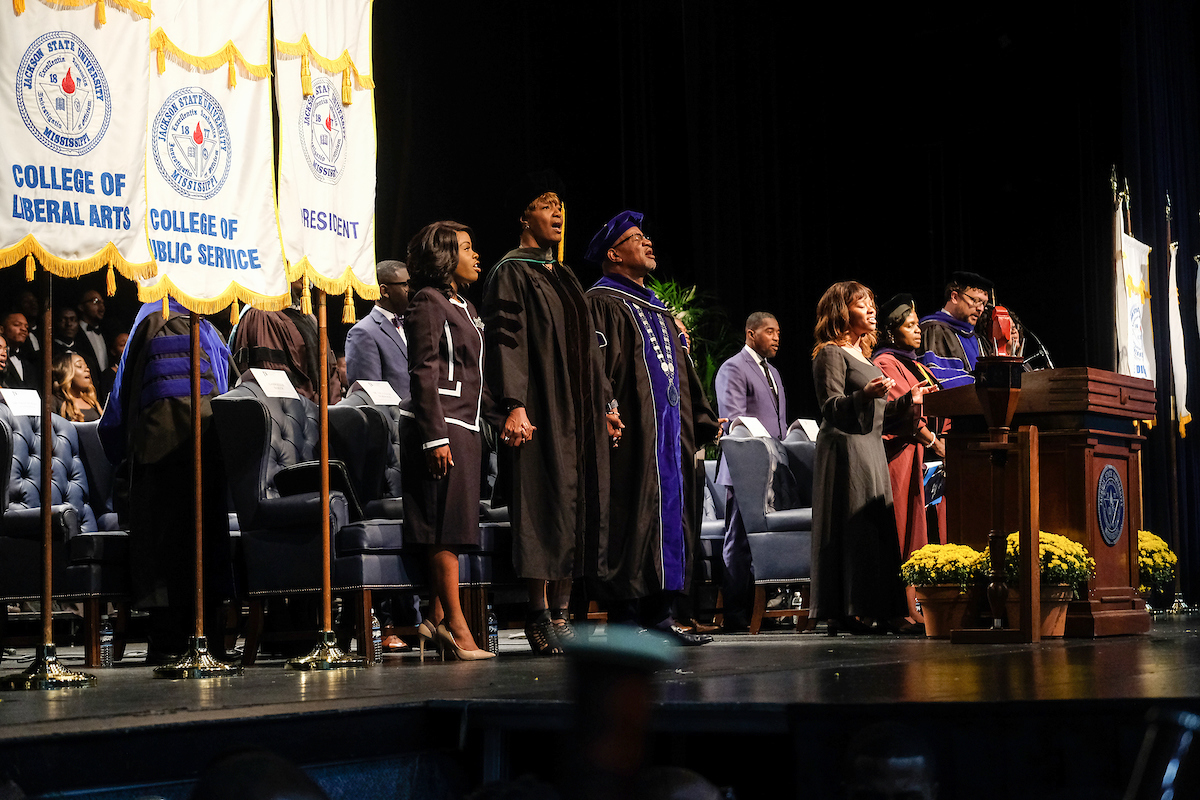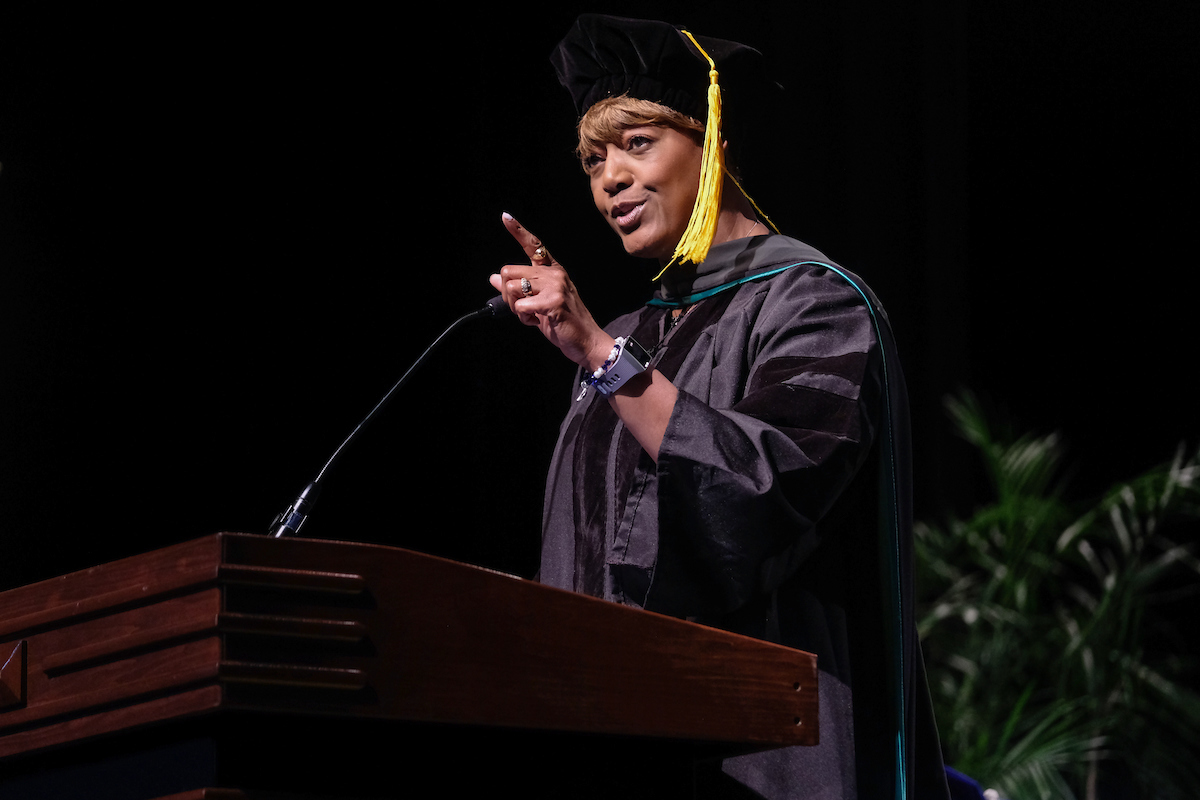
![]()
[hr]
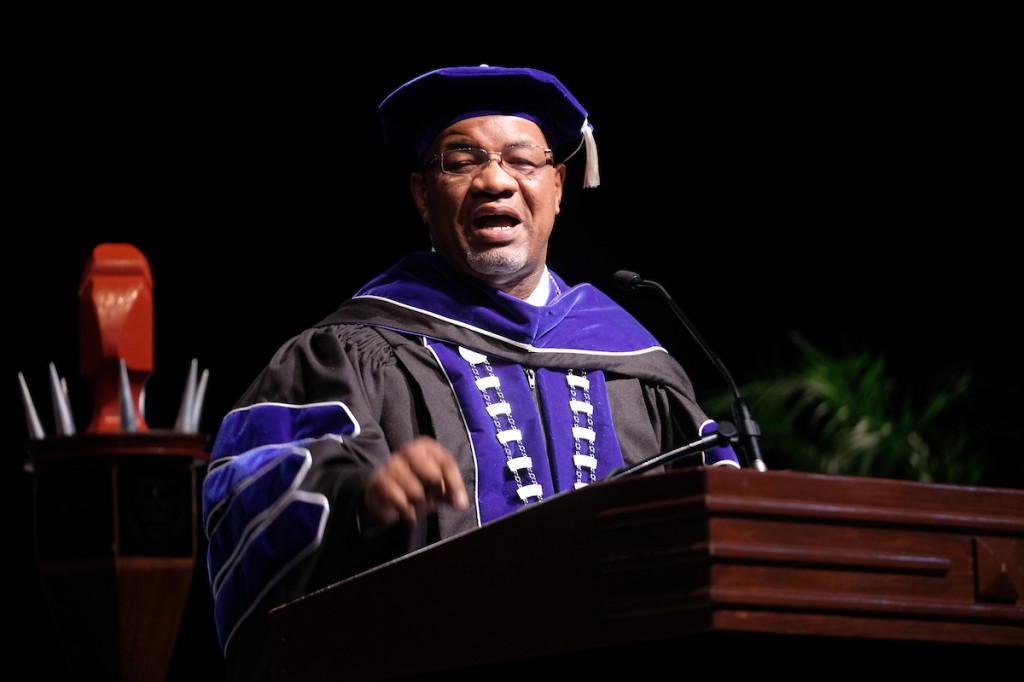
During JSU’s 141st Founders’ Day Celebration, keynote speaker Dr. Earlexia M. Norwood invoked a familiar Biblical passage Thursday to edify the HBCU’s storied history while also denouncing racism and voter apathy.
Norwood, a JSU alum and board-certified physician, extracted passages from the oft-repeated Psalm 23 to walk through JSU’s trials, tribulations and triumphs from the time it was founded in 1877 to present day.
“The Lord is my shepherd, and I shall not want. He maketh me to lie down in green pastures. He leadeth me beside the still waters. He restoreth my soul,” recited Norwood, the new 19th president of the Jackson State University National Alumni Association.
[dropcap]S[/dropcap]HE used that passage for her first point to indicate that “the foundation for the 141st celebration was October 23, 1877, at Natchez Seminary. God was the foundation, the inner rooms and the ceiling,” she told a packed audience inside the Rose E. McCoy Auditorium.
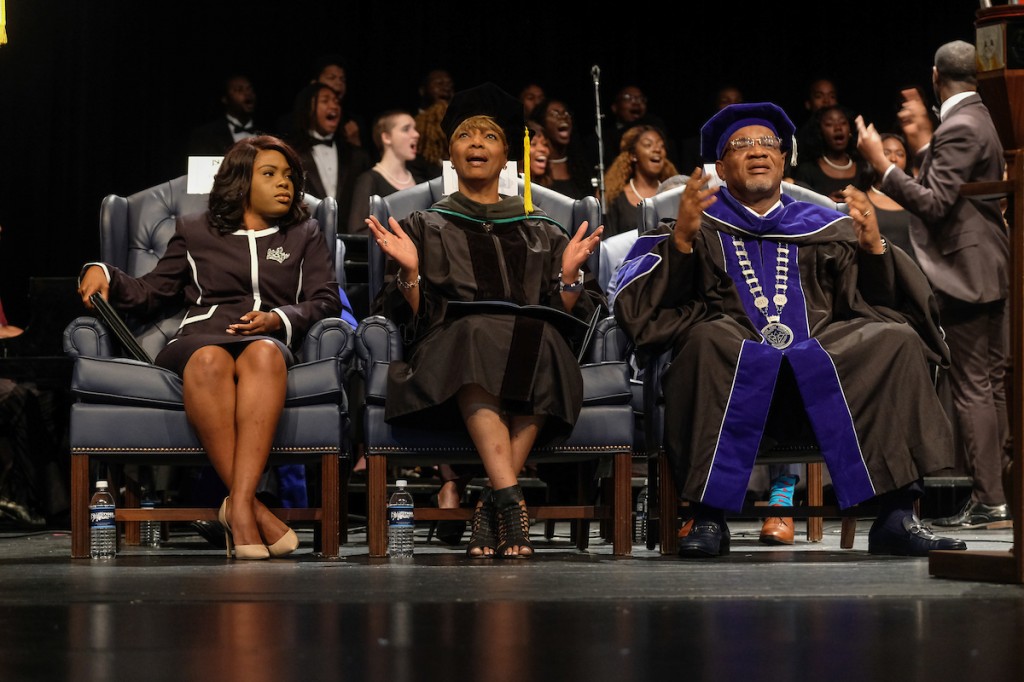
Also, Norwood noted that while there was a great need for equality and justice “there was no reason to wonder about where things would come from.” She said people believed at the time that God would touch hearts, and people would “give up their time, gifts and money. That remains the case in 2018.”
Her next point focused on the consequences of certain behaviors, especially when we’re “hard-headed.” When we settle down he’ll lead us to calm, she assured.
“Sometimes … we don’t listen to anyone or anything, and we have to be made to stop and lie down. I see this often as a physician for people who are sleep-deprived. They’re getting abdominal fat, headaches, nausea, vomiting, loss of memory. And it’s all because of a lack of sleep.”
She also is critical of “stuck-in-their-way leaders who will never see you the way you are but the way they choose.”
During a time when the institution was changing from private to state control, Norwood said a Mississippi legislator in 1940 opposed the institution keeping Jackson College as its name because he detested the notion of a college for Negroes.
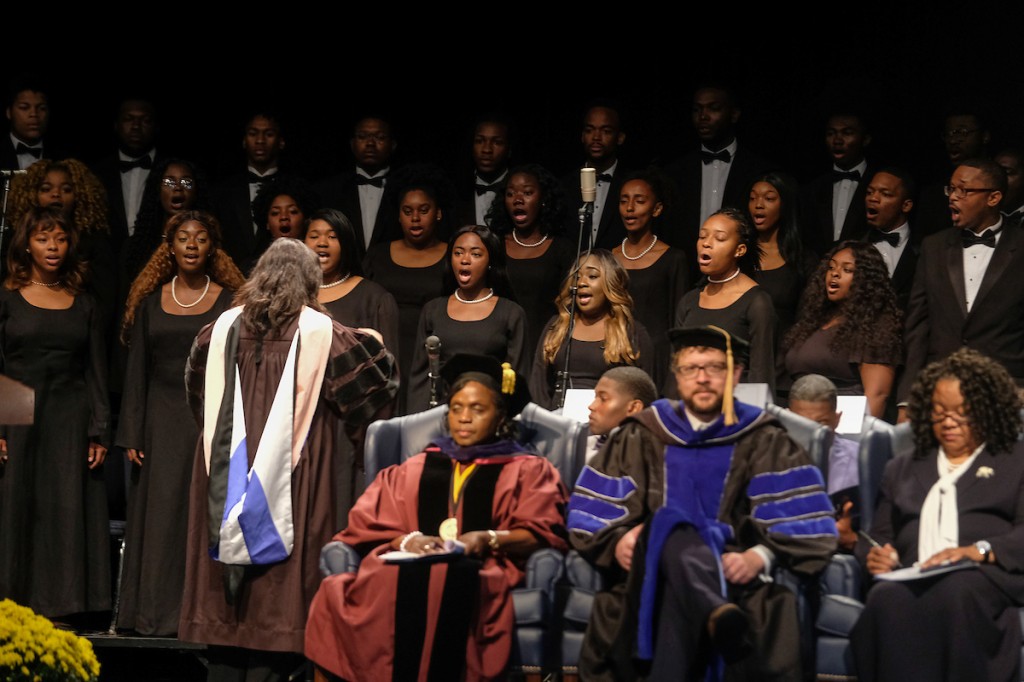
Furthermore, she said Southern governors such as Ross Barnett and George Wallace viewed black people differently, too.
Scientific racism was another scourge because physicians taught and documented inaccurately that African-Americans were inferior to whites due to smaller brains and hearts.
Her response: “A lie is a lie” whether repeatedly verbally or on paper.
Reflectively, JSU President William B. Bynum Jr. described Founders’ Day as a special time to pause.
[dropcap]W[/dropcap]HILE he admitted to forgetting some holidays or birthdays, he said observances such as Founders’ Day demand attention to “honor this outstanding institution.”
Bynum said, “Our duty and responsibility is to continue the legacy built on the shoulders of our forefathers and foremothers.”
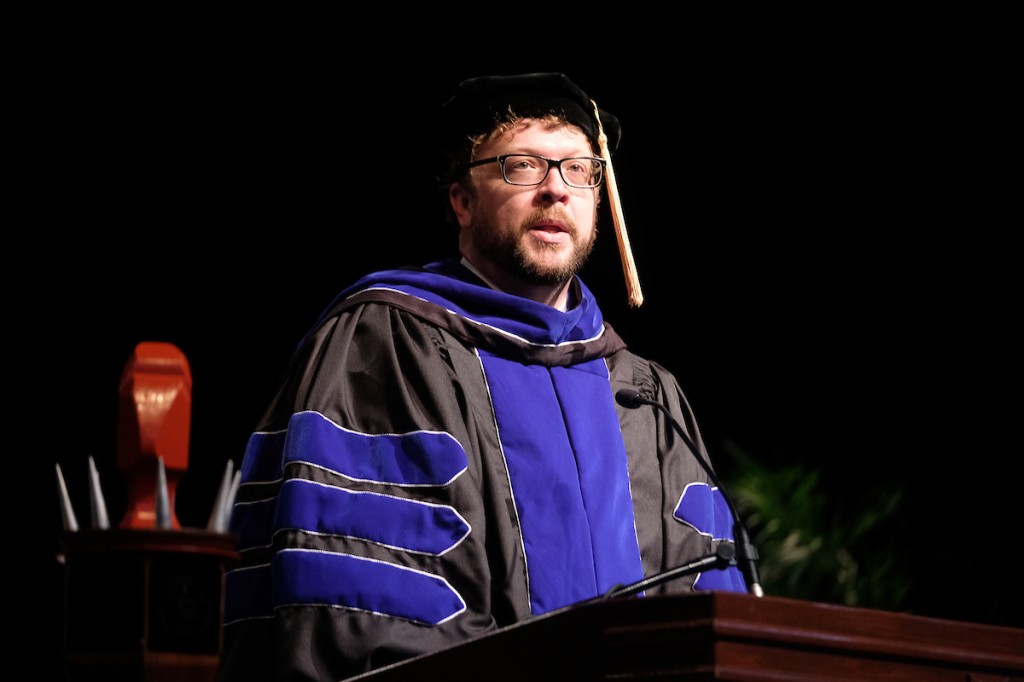
He then saluted former JSU President Dr. John A. Peoples in the audience for being “a constant force … one of the greatest presidents in the history of this institution.”
Then, overjoyed by the overwhelming attendance, Bynum told everyone “it is no mistake or by luck that you are at this institution at this critical time. It is God-ordained.”
He said, “Our purpose is to be a good students, faculty and staff so we can return to those still, calm waters … because we are Jackson State, J-S-U.”
Later, Norwood leaned on Psalm to illustrate how those nurturing, green pastures in 1877 helped JSU thrive as it developed and groomed ministers and teachers.
Now, in 2018, she said JSU boasts 38 departments with nearly 2,000 students in the College of Science, Engineering and Technology. Norwood hailed other successful areas such as the School of Public Health; College of Public Service; College of Liberal Arts; College of Education and Human Development; and the College of Business.
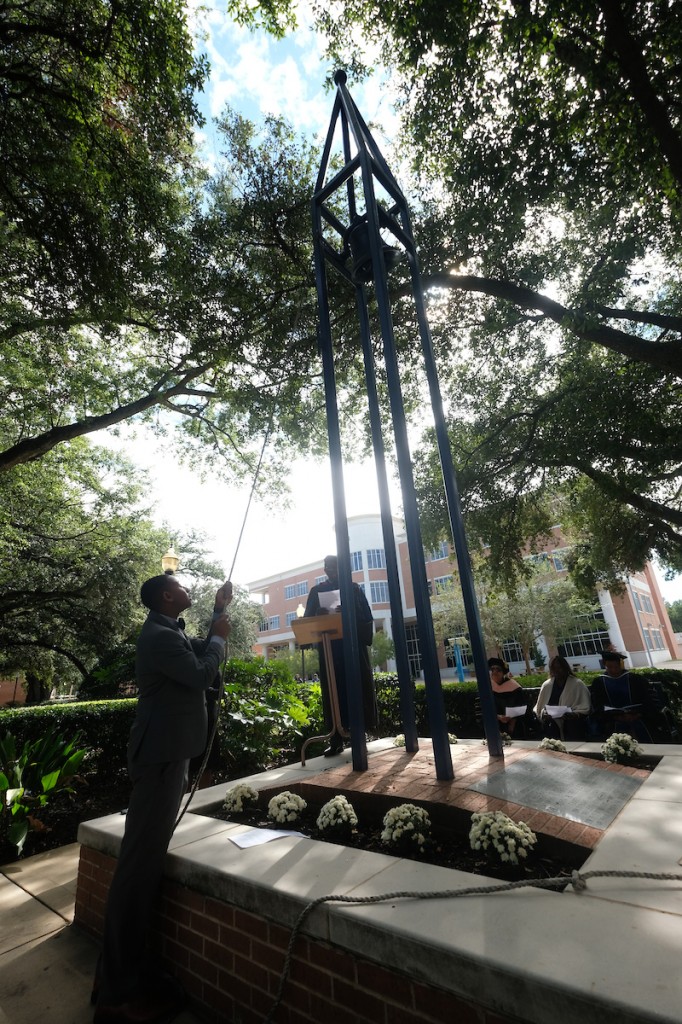
“As you can see, the degree from this university means something,” said Norwood, citing the accomplishments of distinguished alumni. Among these: WLBT news anchor Maggie Wade; Dr. Lillian Rose, librarian emeritus who graduated in 1940; U.S. District Judge Carlton Reeves, who was appointed by President Barack Obama; Cornell Brooks, former NAACP president; and Vivian Brown, the first African-American woman to serve as a meteorologist at the Weather Channel.
Along with sports greats such as W.C. Gordon, Robert “Bob” Braddy and Eddie Payton, she spotlighted her own mother, Earlene Wilson Norris of west Jackson, who received bachelor’s and master’s degrees from JSU.
[dropcap]M[/dropcap]OREOVER, Norwood continued to show how Psalm 23 is relevant to the university today. She said JSU is eager to experience still waters after a wave of turbulent challenges. She recounted the story of a city commissioner who suggested relocating the despised JSU to Rankin County.
Then she told how R.W. Millsaps, a founder of the college that bears his name, uprooted JSU from State Street. She said Millsaps “didn’t like the smell of mules and the way kids were meagerly dressed” in areas populated by white residents.
Despite efforts to delete the all-black institution, she declared that JSU walked through the valley of the shadow of death but feared no evil because of God’s mighty hand at work.
“There have been times in our history where our doom was predicted or expected. And we have risen to the occasion,” declared Norwood. “Our demise was thought to be imminent many more times since that period.”
For example, she said the death knell appeared ready to sound when the institution faced multiple name changes. It went from Natchez Seminary to Jackson College and, in 1940, to Mississippi Negro Training School. In 1942, however, alumni protested the latter, and the name became Jackson College for Negro Teachers. Then, it would become Jackson State College.
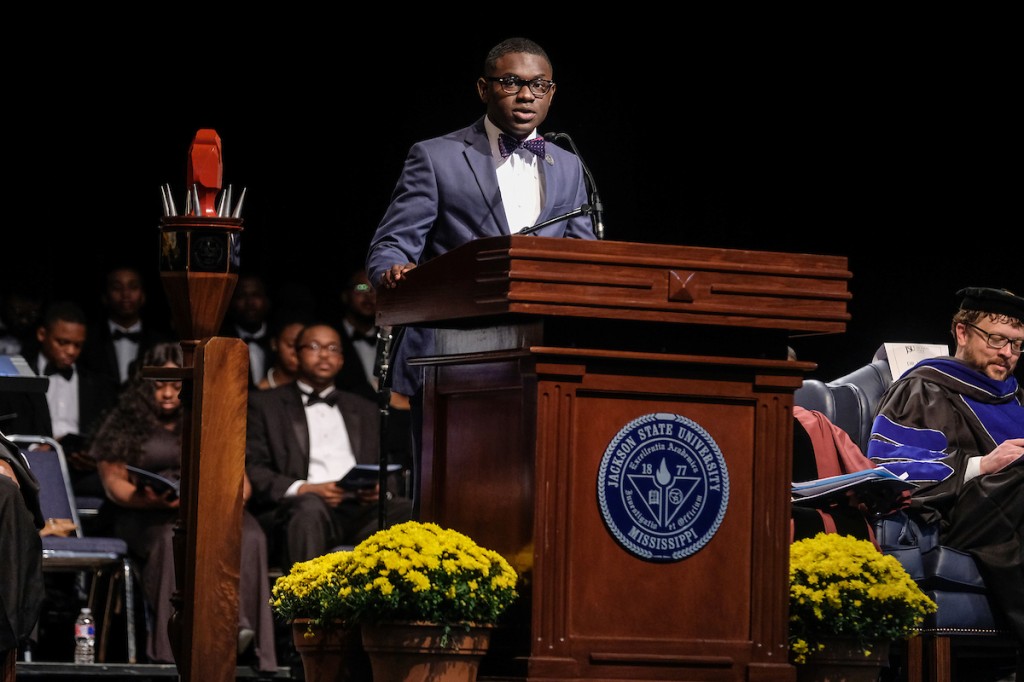
Once again in 1974, it would appear that rumors of JSU’s impending demise were grossly exaggerated. In that year, the institution became known as Jackson State University under former President Peoples, a JSU alum.
After that progress, however, Norwood said new attempts to demolish JSU soon emerged when a proposal began floating to combine all HBCUs into one school. That failed, too.
Subsequently, another storm brewed that caused shockwaves and hysteria. In 2016, the Mississippi Institutions of Higher Learning announced that JSU had enough funds to survive only two days. Although panic ensued, the shadow of death was vanquished again, she said.
“Our alumni, faculty and staff have been the life support of this institution. We’ve survived many shadows of death and will continue to do so because thy rod and thy staff they comfort me.”
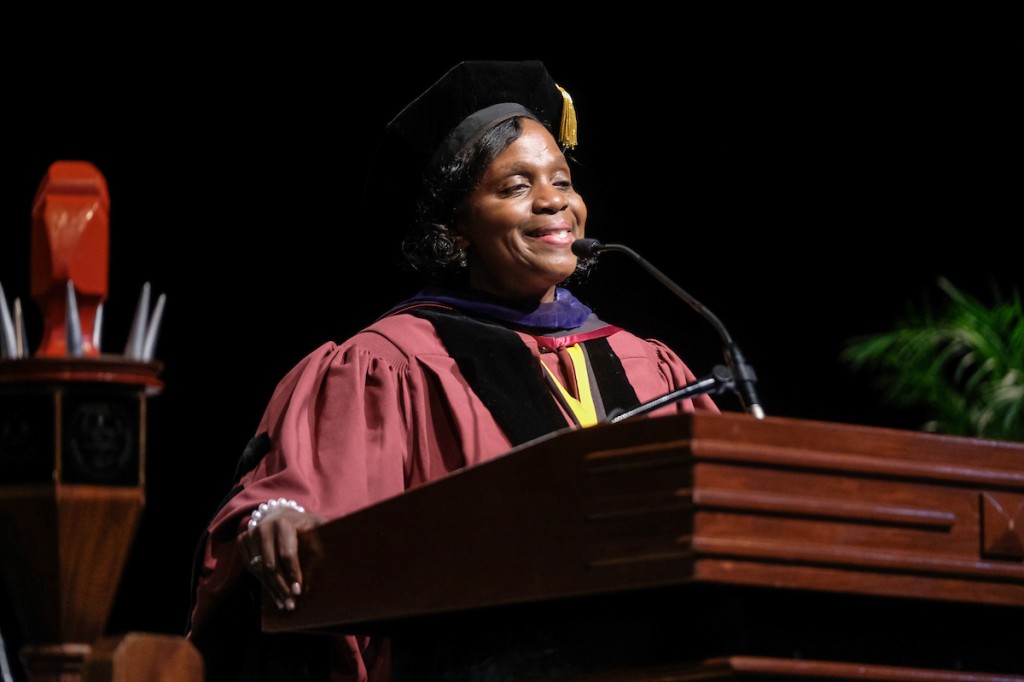
[dropcap]N[/dropcap]ORWOOD also paid homage to the Rev. Dr. H.P. Jacobs, the founder of the Baptist Convention and Natchez Seminary, the birthplace of JSU. Before Jacobs gained prominence, he had been a runaway slave and janitor named Samuel Hawkins. After learning to read and write, Hawkins forged freedom papers for himself and his extended family. Ultimately, as Jacobs, he became a state senator and physician.
Lastly, Norwood focused on the scripture that declared “I will dwell in the house forever.” She interpreted those words to mean “we will continue to find a way or make one.”
She recognized supporters of that belief because they have pledged to help keep JSU afloat. Among these include Cortez Bryant, music manager of Lil Wayne, for setting up $500,000 scholarships; Calvin Williams, committing to donate $100,000; Maxine Johnson, vowing to give $40 a month, and Darrian Johnson, a physics major with a double minor in chemistry and biology, for carrying out his duties as Mister JSU and maintaining honor roll status.
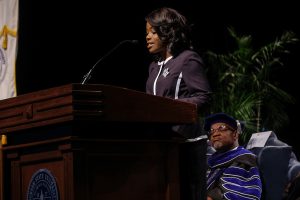
Sustaining JSU is as vital to young African-Americans as is exercising the right to vote, she said.
“To not vote is a vote for the status quo.” Otherwise, she said, the consequences would be dire.
[dropcap]’I[/dropcap]F you care about our history, you need to protect our future. If you’re concerned about African-American men being blocked from entering their apartment building, being followed and questioned by a fellow tenant because they look differently, you need to vote,” she urged.
“If you’re concerned about equitable pay opportunities for women in a safe workplace without sexual harassment, you need to vote. If you’re concerned about male teens missing the bus and being targeted with a shotgun for knocking on a door and asking for directions, you need to vote,” she demanded.
“If you’re concerned about JSU being funded to educate future Tigers, decreased enrollment, purging of students, appropriation to build a dorm, about the house of JSU lasting forever, you need to vote,” she blared.
“Serving is a hallmark of this house. … I declare that this house, after 141 years, will continue to serve until Jesus returns. … This JSU house will live forever and dwell forever. So, let it be written; so, let it be done,” Norwood concluded.
